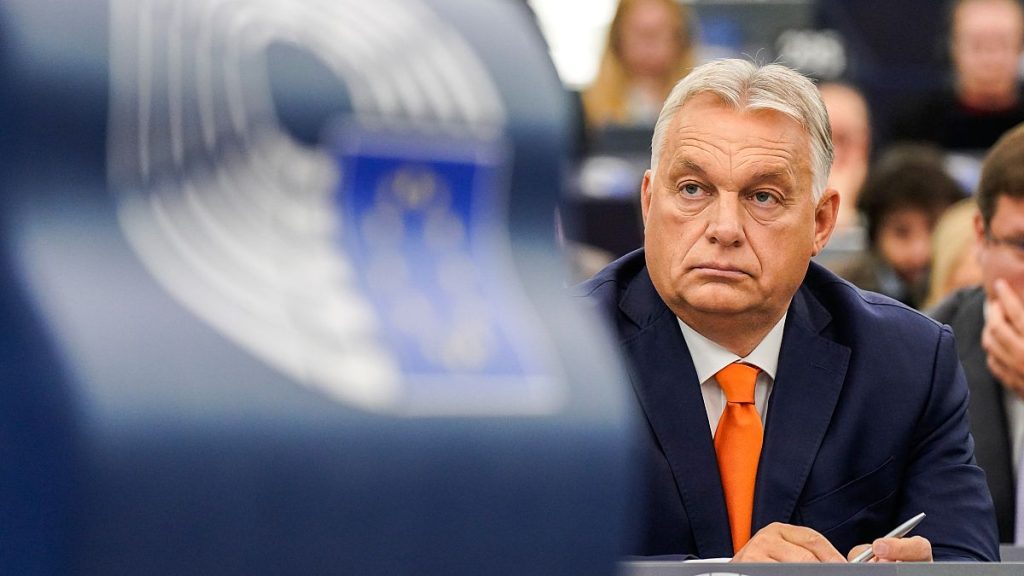Hungarian Prime Minister Viktor Orbán’s speech outlining his priorities for the Hungarian Presidency of the EU sparked a divided reaction at the European Parliament, with both admirers and critics voicing their opinions. The European People’s Party, formerly a party that Orbán belonged to, was particularly critical, with leader Manfred Weber accusing Hungary of being plagued by corruption and claiming that Orbán represented the past. Opposition party leaders and left-wing MEPs also expressed concerns about the state of democracy and the rule of law in Hungary, with some even boycotting Orbán’s speech and labeling him an autocrat.
Many left-wing MEPs openly accused Orbán of turning Hungary into the most corrupt country in the European Union and criticized his foreign policy, including his interactions with world leaders such as Putin and Xi. Concerns were raised about the uncertainty surrounding the upcoming US election and the potential for Orbán to interfere on behalf of the EU. In addition, criticism was directed at Hungary’s migration policy and Orbán’s proposal for more border controls and the implementation of “hotspots” outside EU territory to verify the asylum rights of migrants before allowing them entry.
Despite the criticisms and accusations from the left, Orbán’s approach to the migration issue and defense of traditional family values earned him praise from his own political group, Patriots for Europe, as well as from other radical right-wing groups in the European Parliament. Orbán’s speech was commended for its focus on urgent issues such as energy costs, competitiveness of European companies, and border protection. Some MEPs from the Conservative group expressed admiration for Orbán’s speech but also voiced caution regarding the Russian invasion of Ukraine, which Orbán did not address in his opening speech but later specified his objective of obtaining a ceasefire through dialogue with Moscow.
The admiration for Orbán’s speech from the right-wing groups was evident, with some members calling it a breath of fresh air and criticizing other EU leaders and institutions. Despite his support from these groups, concerns were raised about the potential dangers posed by external enemies, such as the alliance between Russia, China, Iran, and North Korea. ECR co-chair Nicola Procaccini expressed disappointment with Orbán’s position on the Russian invasion of Ukraine, emphasizing the need to recognize and address these external threats to the EU’s security and stability. Overall, Orbán’s speech highlighting his priorities for the Hungarian Presidency of the EU sparked a mix of admiration and criticism within the European Parliament.













